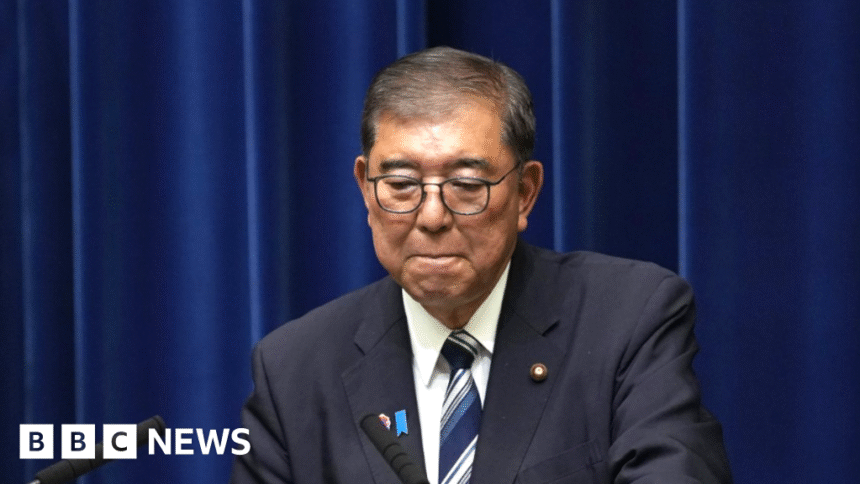Japan’s Prime Minister Shigeru Ishiba has announced his resignation, marking a significant political shift after less than a year in office. This decision follows two major electoral defeats for his party, the Liberal Democratic Party (LDP), which has been the dominant force in Japanese politics for nearly seventy years. The announcement comes just a day before the LDP was set to vote on the likelihood of an internal leadership contest that could have compelled Ishiba to vacate his position.
Under Ishiba’s leadership, the LDP experienced an unprecedented loss, failing to maintain its majority in the lower house for the first time in 15 years, followed by losing control of the upper house in elections held in July. These outcomes have sparked concerns about Japan’s political stability, particularly in a time of increasing tensions with China and regional instability.
In his resignation speech, Ishiba emphasized the importance of timing, noting recent developments in negotiations regarding U.S. tariff measures. “Now that a conclusion has been reached in the negotiations concerning the US tariff measures, I believe this is precisely the appropriate time,” he remarked, referencing a recent agreement that aimed to alleviate tariffs imposed on Japanese cars and other exports by U.S. President Donald Trump.
Despite intense pressure to resign, Ishiba had previously asserted his commitment to resolving the tariff dispute with Washington before stepping down. In his statement, he referred to the negotiations as a “national crisis” and expressed his belief that it was crucial for his administration to conclude these discussions successfully.
Ishiba, who took office in October 2024 with a platform focused on combating rising prices, faced significant challenges during his tenure. Japan is currently grappling with economic difficulties, including a cost-of-living crisis and soaring inflation, exemplified by the doubling of rice prices over the past year. His handling of these issues has not inspired public confidence, further exacerbated by a series of controversies surrounding his leadership style.
Public support for Ishiba waned after criticism over appointing only two women to his cabinet and allegations of distributing expensive gifts to party members. As he prepares to step down, he has pledged to fulfill his responsibilities to the public until a successor is appointed.
The LDP will now embark on a process to elect a new leader, who is expected to take over as prime minister following a parliamentary vote. The political landscape in Japan remains uncertain as the nation grapples with both internal and external challenges.







